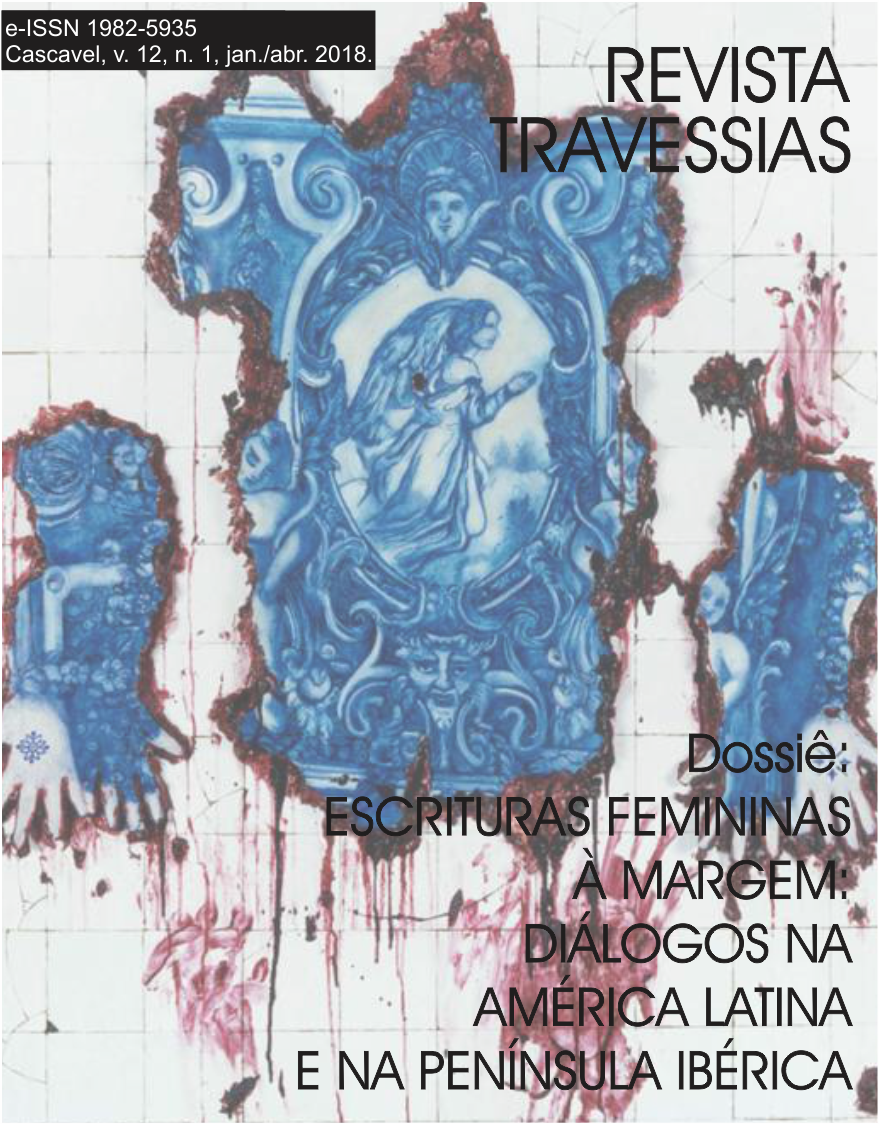The woman "Neither Maindenlike or from Home" em Esmeralda, por que não dancei and Ponciá Vicêncio.
Keywords:
Black woman, periphery, identity, narrative.Abstract
At the present time, it has been possible to identify, in the different modalities of cultural production, the manifestation of the voices of marginalized groups, excluded from the social and economic centers. In this context, the voice of the poor and black women on the outskirts of urban centers is recognized, which builds legitimate forms of expression that challenge the hegemony of the canon, predominantly ethical and masculine. Esmeralda, por que não dancei, de Esmeralda do Ortiz, is the first person narrative of the author's own life, poor black girl, who has been in the streets of São Paulo since she was eight years old. It is organized from a fluent, colloquial, dynamic account, added to documents, testimonies and photographs, composing an original and forceful mosaic of meanings. Ponciá Vicencio, the novel of formation of Conceição Evaristo, literarily reconstructs the story of the protagonist, black and poor, who goes to the city in search of opportunities denied to the blacks in the field. Different narrative modalities, analyzed here in their specificities, and in the way they articulate possibilities of expression / representation of black and poor women in the Brazilian context, in search of their identity, showing resistance and legitimation and promoting an exercise of otherness. O Segundo Sexo (2016), by Simone de Beauvoir; Mulher, casa e cidade (2015), by Antonio Risério; Literatura brasileira contemporânea: um território contestado (2012), by Regina Dalcastagné are the theoretical contribution used as the basis of the analysisDownloads
References
BEAUVOIR, Simone. O segundo sexo. Rio de Janeiro: Nova Fronteira, 2016.
CHIAPPINI, Ligia. Do beco ao belo: dez teses sobre regionalismo. Estudos históricos, Rio de Janeiro, v., 8, n.15, p. 153-159, 1995.
CALVINO, Ítalo. As cidades invisíveis. São Paulo: Companhia das Letras, 1999.
DALCASTAGNÉ, Regina. Literatura brasileira contemporânea: um território contestado. São Paulo: Horizonte, 2012
EVARISTO, Conceição. Ponciá Vicêncio. Belo Horizonte: Mazá Editora, 2005.
JESUS, Ana Carolina Maria de. Quarto de despejo. São Paulo: Ática Editora, 2007.
ORTIZ, Esmeralda do Carmo. Esmeralda: por que não dancei. São Paulo: SENAC Editora, 2000.
RESENDE, Beatriz. Contemporâneos: expressões da literatura brasileira do século XXI. Rio de Janeiro: Casa da Palavra, 2008.
RISÉRIO, Antônio. Mulher, casa e cidade. São Paulo: Editora 34, 2015.
Downloads
Published
How to Cite
Issue
Section
License
Creative Copyright Notice
Policy for Free Access Journals
Authors who publish in this journal agree to the following terms:
1. Authors keep the copyright and grant the journal the right of first publication, with the work simultaneously licensed under the Creative Commons Attribution License, which allows sharing the trial with acknowledgment of authorship and initial publication in this journal.
2. Authors are authorized to take additional contracts separately, for non-exclusive distribution of the work version, published in this journal (eg publish in institutional repository or as a book chapter), with acknowledgment of authorship and initial publication in this journal.
3. Authors are allowed and encouraged to publish and distribute their work online (eg in institutional repositories or on their personal page) at any point before or during the editorial process, as this can generate productive changes, as well as increase both impact and citation of the published trial (See The Effect of Free Access).
Creative Commons License
This work is licensed under a Creative Commons Attribution–NonCommercial-shareaswell 4.0 International License, which allows you to share, copy, distribute, display, reproduce, completely or part of the work, since there is no commercial purpose, and authors and source are cited.



